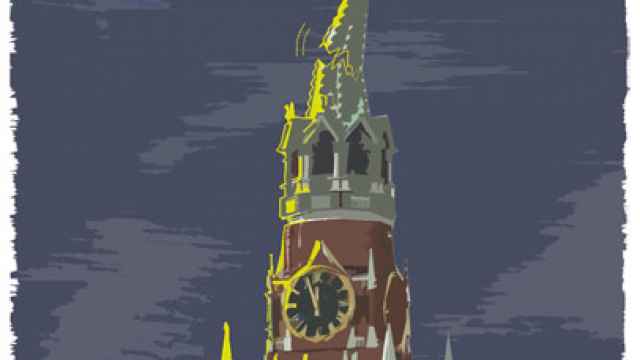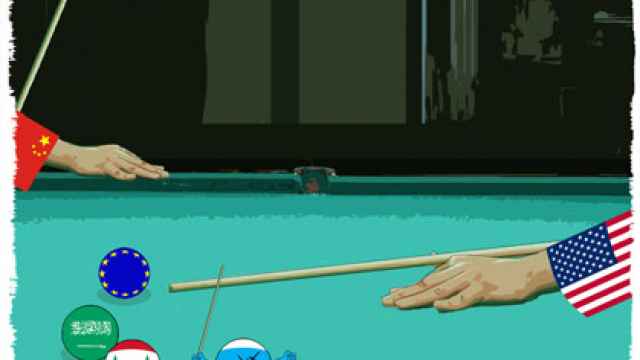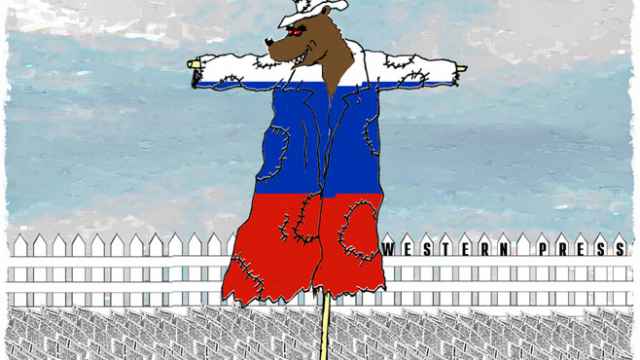Social networks are brimming right now with nostalgic photo collages based on the second “Back to the Future” movie. Released in 1989, the episode features the main character, Marty McFly, using a time machine to travel to a date in the far future: Oct. 21, 2015.
Fans of the film joke with each other about how similar the real 2015 is to the one that in 1989 seemed like a distant and unimaginable future. And, of course, this provides a good opportunity to consider how something that seemed unimaginable yesterday, by tomorrow already looks inevitable.
For example, in the world that Marty McFly inhabited in 1989, few could have imagined that the Soviet Union would cease to exist just two years later. It seemed like such a sturdy part of the postwar order, but people forgot that the order itself had not always existed, and that it could not exist forever. In just two short years, that postwar order was gone.
The fact that Francis Fukuyama’s theory about the “end of history” proved illusory is probably not a function of the specific global situation at the end of the Cold War — a situation that many viewed with hope, but that has now turned to disappointment. Rather, such ideas probably repeat in some form with every generation and are connected with a specific age-related sense of comfort. Roughly speaking, you become attached to the world as you experienced it during your best years as a youth.
Of course, everyone would prefer those “wonder years” to last as long as possible and that they would constitute their own personal “end of history.” But as a rule, they are only the beginning. And we often feel threatened by the inevitable changes that come, not so much because the situation is really worse than before, but because we feel anxiety over any changes to the world as we knew it as 20-year-olds. We gradually move into our future without noticing or realizing it, encountering neuroses, depressions and crises as the future inexorably becomes the present.
The last two years again remind us that the past, present and future are the stuff not only of our personal story and that of our loved ones, but also bear on the fate of entire nations and the whole world, of which all our personal stories are a part.
The world has changed markedly since the protestors in Kiev lit their first fire at Maidan — in much the same way as it changed between 1989, when it still seemed that the Soviet Union would survive the growing turbulence without collapsing, and 1992, when the time came to discard the non-functioning fragments of the past.
The bipolar world disappeared then, just as the post-Soviet world is undergoing a transformation now.
However, since those changes are occurring not only in Northern Eurasia, it would be overly ambitious to call this the “end of the post-Soviet world.”
And although social and political upheavals have occurred on Soviet and now former-Soviet territory with the regularity of a commuter train, it is perhaps erroneous for those people to extrapolate their feeling of impending apocalypse to the rest of the planet.
Still, it is impossible not to notice that the speed and seriousness of the changes are growing, and that we continue pretending that nothing significant is happening. That is a fairly dangerous situation. It is as if a person were to simply ignore construction workers right in front of his house, hiding his head under a pillow to block out the roar of construction equipment. And then, when he finally wanted to step outside, he discovered that a wall of solid concrete now blocks his front door and a multi-level parking lot stands outside his window.
There are several such glaring examples in the world of changing realities that get ignored — although the former Soviet peoples are probably still the champions at failing to recognize changes.
Here, by some strange paradox, it is generally believed that Russia yields resources that, if not identical to, are at least comparable with those once held by the Soviet Union. According to this logic, Russia can dictate terms to the former Soviet republics and boldly stand up for its sometimes unpleasant political allies in fairly remote areas of the globe.
Of course, senior decision-makers in Moscow probably understand that Russia does not possess the material resources of the Soviet Union. Even a largely successful firing of cruise missiles from the Caspian Sea at targets in Syria cannot change that fact. And they probably remember that the Soviet material and technical might for which they wax nostalgic could not have been so great, or else its structure — that was no more solid in the social or institutional sense than modern Russia’s — would not have collapsed like a house of cards.
It is therefore anyone’s guess as to what, under such circumstances, motivates Russian politicians to make foreign policy moves that continually escalate tensions — from Georgia to, most recently, Syria.
Theories range from the cynical view that once an authoritarian regime embarks on a war course it can only fuel its continued popularity by continuing to fight, to the idealistic hypothesis that President Vladimir Putin and his administration hope to recapture the public’s confidence through its brutal military escapade in Syria and thereby mobilize the people for real change at home.
But it is extremely difficult to shake the impression that, in place of doing the math to decide if Russia even has the money for fuel and ammunition to keep its planes in the air until Syrian President Bashar Assad achieves victory, the responsible officials are simply closing their eyes to the situation.
However, that symptom is hardly peculiar to the Kremlin alone. For example, the United States has maintained the illusion for a quarter of a century that the Russian government enjoys all the same rights, privileges and opportunities in the modern world that the Soviet Union once had.
And many U.S. experts stubbornly refuse to see any fundamental difference between the era presaging the collapse of the Soviet Union and the present period. Their analysis of events in Russia boils down to observations concerning the relationships within Putin’s inner circle — in the same way that Washington once studied the Politburo — and their predictions are reduced to the optimistic assumption that the existing regime will one day cease to exist and be replaced by something more attractive to the West.
These are all typical attempts to block out the noise of the builders pouring concrete at the front door. But even more interesting than trying to predict exactly how the world will look tomorrow is the question of when people will finally come to the uncomfortable realization that the world will never again be like it was yesterday.
Ivan Sukhov is a journalist who has covered conflicts in Russia and the CIS for the past 15 years.
A Message from The Moscow Times:
Dear readers,
We are facing unprecedented challenges. Russia's Prosecutor General's Office has designated The Moscow Times as an "undesirable" organization, criminalizing our work and putting our staff at risk of prosecution. This follows our earlier unjust labeling as a "foreign agent."
These actions are direct attempts to silence independent journalism in Russia. The authorities claim our work "discredits the decisions of the Russian leadership." We see things differently: we strive to provide accurate, unbiased reporting on Russia.
We, the journalists of The Moscow Times, refuse to be silenced. But to continue our work, we need your help.
Your support, no matter how small, makes a world of difference. If you can, please support us monthly starting from just $2. It's quick to set up, and every contribution makes a significant impact.
By supporting The Moscow Times, you're defending open, independent journalism in the face of repression. Thank you for standing with us.
Remind me later.






